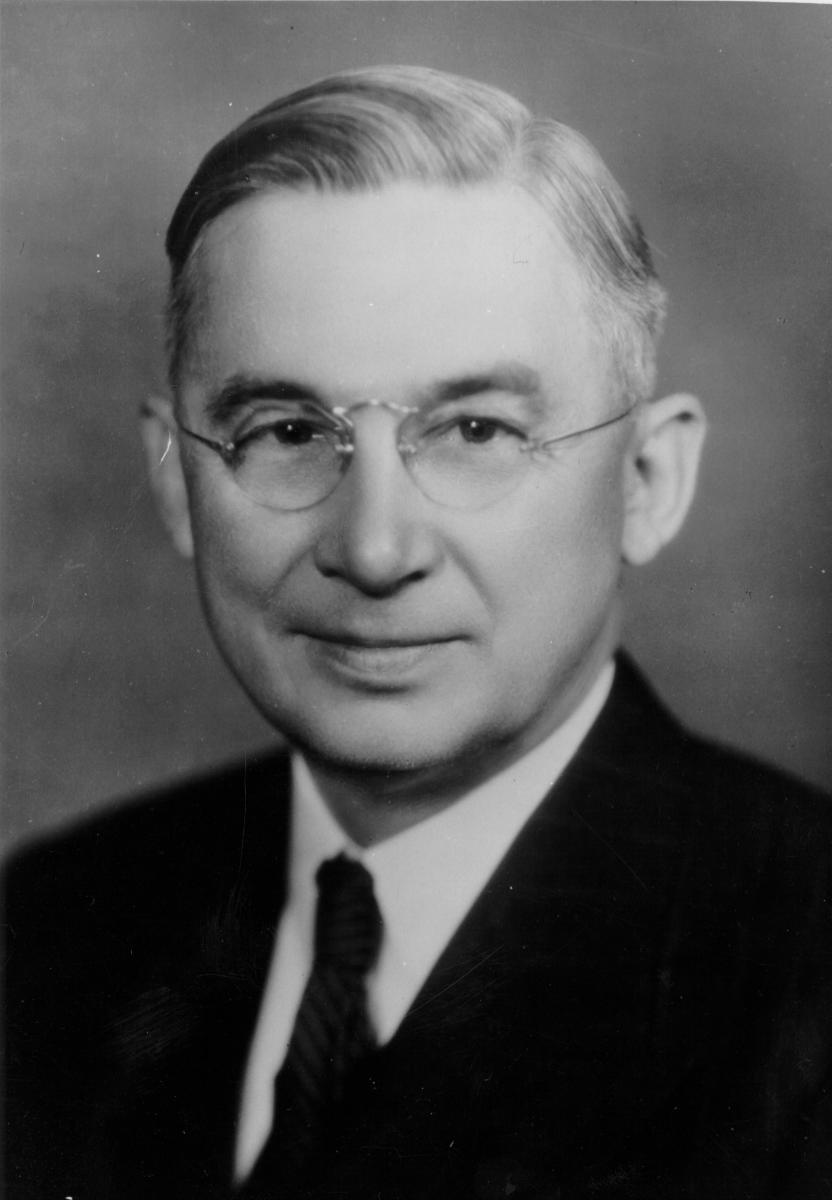John B. Gage

Urged to run for mayor during the final years of the Pendergast era, John B. Gage reportedly called his candidacy “the silliest thing in the world.” But the qualities that made him such an unlikely choice—his distaste for politics and devotion to ethical, transparent city government—made him an ideal leader for a generation of Kansas Citians who had come to expect the worst from their elected officials.
John Bailey Gage’s childhood and family history were factors in the important role he would later play in city affairs. He was born February 24, 1887, to John Cutler and Ida Bailey Gage, who owned the farm, located near today’s intersection of 9th and Cleveland, on which young “Jack” was raised. The elder Gage, a Harvard educated lawyer and Kansas City resident since frontier days, established a reputation for impeccable ethics while serving as city attorney during the acrimonious Civil War years and later represented his home town in the Missouri General Assembly. The younger John B. Gage was a bright youth who sold milk from his family’s own dairy cows to customers throughout the city. At 16, he began his undergraduate studies at the University of Kansas in nearby Lawrence.
He completed a subsequent stint at the Kansas City School of Law in 1909, and a lengthy legal career followed, during which he developed an expertise in probate law and taught evening classes to Kansas City law students. Gage’s professional life proceeded against a backdrop of ruthless local politics in which Democratic machine boss Tom Pendergast’s rise to power eventually made national headlines for its fraudulent elections, dishonest bookkeeping, and general lack of accountability, to say nothing of the vice, racketeering, and general lawlessness with which Kansas City’s leaders were associated.
By the end of the 1930s, however, the machine’s stranglehold on Kansas City was loosening: Boss Tom himself was imprisoned in 1939, and a reform movement had been gaining momentum for years in spite of election-day intimidation. In the spring elections of 1940, John B. Gage was elected mayor on the nonpartisan United Campaign Committee’s ticket. The group, many of whom wore broom-shaped lapel pins to symbolize their promise to make a “clean sweep” of city hall, also took seven of eight city council seats.
Gage’s first step as mayor was to open the city’s accounts to public scrutiny. Among the many anomalies investigators discovered was the revelation that of the $23 million spent by the city in a recent construction and development initiative known as the “10 Year Plan,” over half had been disbursed to companies with no formal contracts (many of which had close Pendergast connections). Next, Gage hired L. P. Cookingham, of Saginaw, Michigan, as city manager. Gage’s own pedigree established him as a principled, second generation Kansas Citian, while Cookingham provided a scientific perspective, unbiased by local attachments. Honestly, and without burdening its citizens with large tax increases, they restored the finances of one of the nation’s most indebted cities.
Gage was re-elected twice and stepped down after completing his third term as mayor. Ignoring calls to run for governor of Missouri, Gage, who once described himself as “forty per cent farmer,” returned to private law practice and Duallyn, his 700-acre farm in Douglas County, Kansas. In his later years he became an accomplished breeder and judge of milking shorthorns and ardent American Royal participant and leader, also speaking out in support of flood control measures beneficial to the entire Kansas City area.
Gage married his first wife, Constance Lane, in 1916; they had one child—a daughter—before Constance’s death of influenza in 1919. Gage and his second wife, Marjorie Hires, whom he married in 1922, became the parents of two sons and another daughter. When he died at age 82 on January 15, 1970, three decades of good government in Kansas City had disproved skeptics who believed Gage’s reforms would not last, and he became known in history as one of the twentieth century’s most important U.S. mayors.
A previous version of this article appears on kchistory.org: http://kchistory.org/content/biography-john-b-gage-1887-1970-mayor
This work is licensed under a Creative Commons Attribution-NonCommercial-NoDerivatives 4.0 International License.
